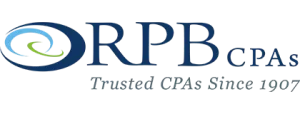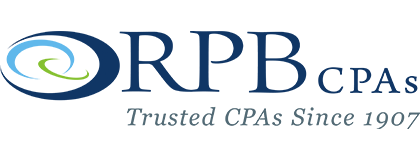Business Newsletters
Are your employees ignoring their 401(k)s?
For many businesses, offering employees a 401(k) plan is no longer an option — it’s a competitive necessity. But employees often grow so accustomed to having a 401(k) that they don’t pay much attention to it. It’s in your best interest as a business owner to buck this trend. Keeping your employees engaged with their 401(k)s will increase the likelihood that they’ll appreciate this benefit and get the most from it. In turn, they’ll value you more as an employer, which can pay dividends in productivity and retention. Promote positive awareness Throughout the year, remind employees that a 401(k) remains
Private companies: Have you implemented the new revenue recognition standard?
Private companies that follow U.S. Generally Accepted Accounting Principles (GAAP) must comply with the landmark new revenue recognition standard in 2019. Many private company CFOs and controllers report that they still have significant work to do to meet the demands of the sweeping rules. If you haven’t started the implementation process, it’s time to get the ball rolling. Lessons from public company peers Affected private companies must start following Accounting Standards Update (ASU) No. 2014-09, Revenue from Contracts with Customers (Accounting Standards Codification Topic 606), the first time they issue financial statements in 2019. For private companies with a fiscal
How do profits and cash flow differ?
Business owners sometimes mistakenly equate profits with cash flow. Here’s how this can lead to surprises when managing day-to-day operations — and why many profitable companies experience cash shortages. Working capital Profits are closely related to taxable income. Reported at the bottom of your company’s income statement, they’re essentially the result of revenue less the cost of goods sold and other operating expenses incurred in the accounting period. Generally Accepted Accounting Principles (GAAP) require companies to “match” costs and expenses to the period in which revenue is recognized. Under accrual-basis accounting, it doesn’t necessarily matter when you receive payments from
Here Comes 2019!
New Limits and Rates for 2019 As we burn the midnight oil to complete all of our last minute year-end tax planning, we also look forward to 2019. Each year many of the "standard" limits and rates provided as a part of our tax code are updated for inflation and other normal increases. To help in your 2019 organizing, please remember to take into account some of these new rates and limits: Tax Provision Details 2019 Limit 2018 Limit Mileage Rates Standard Business Mileage Rate 58 cents 54.5 cents Charitable Mileage Rate 14 cents 14 cents Medical Mileage
Tax Reform & Retirement Planning
Should My Retirement Planning Change After Tax Reform? As the Internal Revenue Service continues to forge ahead in writing regulations and opinions to help clarify the many gray areas in the largest tax reform in over 30 years, we as professionals also continue to research and explore areas in the revisions to help our clients save money, both now and down the road. As most of us are aware, there are a number of different products available to fund retirement for employees, employers, and business owners. In order to determine what is the best product and method, not only do
Can Bad Bookkeeping Cost You Money?
Does it really matter how perfect my accounting records are if I am only a small business? When most small business owners think of bookkeeping and accounting, they think of it as a necessary evil and often fail to focus on making sure the records are clear and supported. Many new small businesses often have cash flow needs that are sometimes not met by sales and require inflows from other sources such as loans. Also, those same small businesses often co mingle personal expenses in with business accounts. Although some do not feel these items are a big issue so
State Income Taxes after the Wayfair
What Does the Wayfair Decision Mean for Income Taxes? Sales and use tax e-commerce considerations receive the bulk of attention from state lawmakers, perhaps because they are less difficult to conceptualize. The corporate income tax concerns raised by these transactions are just as pressing, if not more so, given the potential liabilities at stake. There are two primary issues. First, does selling purely electronic products and services to customers in a state establish nexus (a sufficient connection to warrant imposition of tax) for an out-of-state company lacking any other contacts with the state? Second, if an out-of-state company does have
Did Tax Reform Make the Kiddie Tax Worse?
How Tax Reform's kiddie tax may effect YOU In today's day and age we all strive to make sure our children are better off then we were. To that end, we often see children with investment accounts which, in the past, also sometimes provided a way to shelter some income at lower tax brackets. The last great tax reform, 1986, addressed this issue and brought us the kiddie tax. Under these rules, children are taxed at their normal applicable rates on their earned income, and on their investment income up to a prescribed amount. Under the prior law, children who
Corporate Debt, Is the ‘S’ Corporation Best?
Tax Planning with Corporate Structures and the New Tax Laws As we look at tax Reform and the numerous challenges it presents to even the smart tax planner, one of the most asked question by business owners is "What type of entity should I be?". With the addition of the new 20% deduction available to most businesses, many tax preparers simply look at benefits of 'S' versus 'C' as more of a math problem to solve. What is the tax impacts of that second layer of taxation (even though the rate is much lower) versus the pass-though higher rates and
The Power of Time Value of Money and Your Child’s Summer Job
Tax Planning for Your Children with the Help of Time Value of Money Tax planning and investment advice are (or should be) closely tied together. Looking at one while ignoring the other can greatly alter actual results from your expectations. Although we at RPB are not an investment advisory firm, we as tax planners work hand-in-hand with many advisory firms. The smart investor knows that the one thing that is never changing is time, and with proper planning, time can be an investor's greatest asset instead of their worst nightmare. Investing early can mean the difference between retiring when



